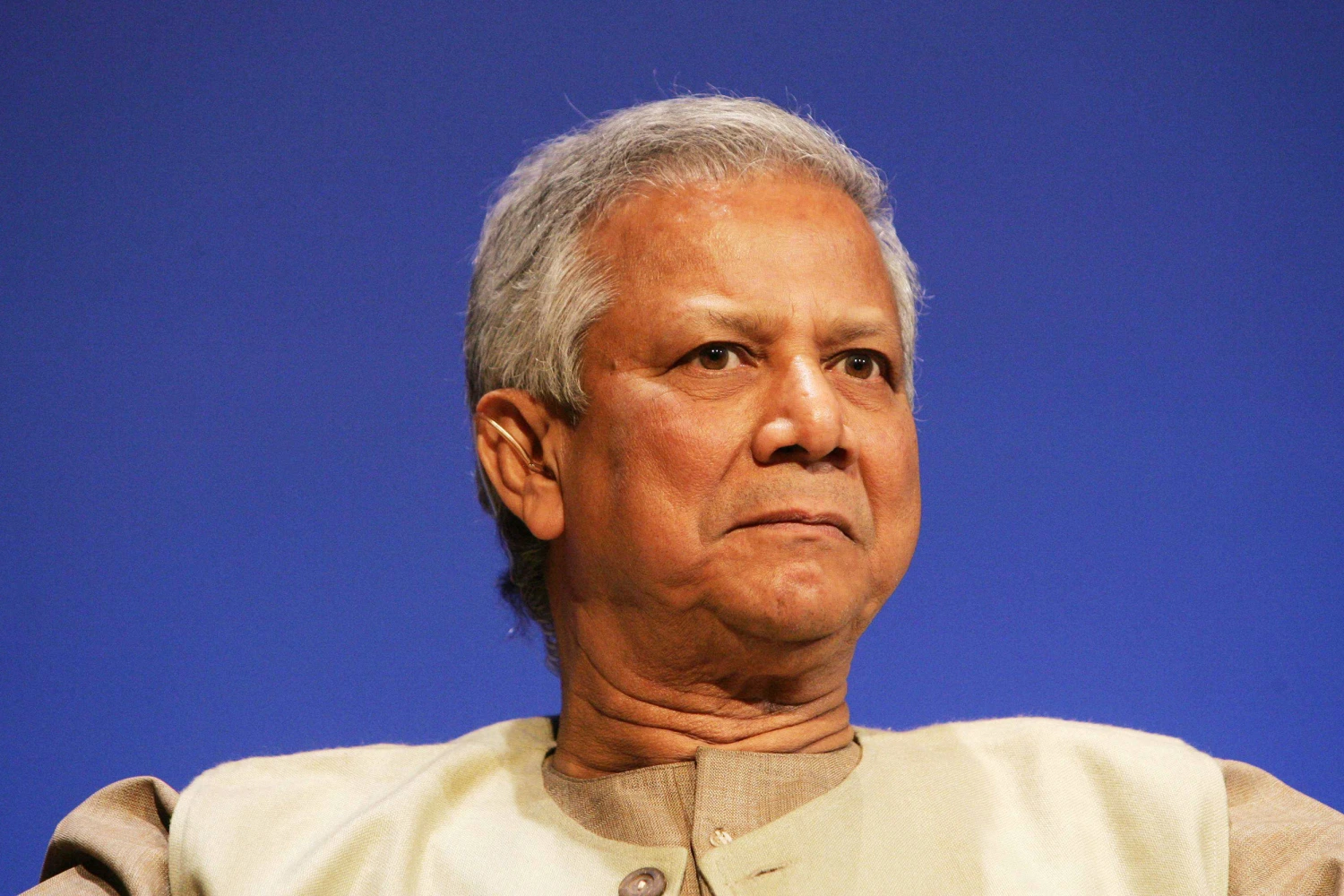Bangladesh’s Nobel-winning microfinance pioneer Muhammad Yunus has been tapped to lead an interim government after the ouster of former Prime Minister Sheikh Hasina, the country’s presidency announced early Wednesday.
The decision “to form an interim government with… Yunus as its chief” was taken at a meeting of President Mohammed Shahabuddin, military leaders, and the heads of the Students Against Discrimination group, Shahabuddin’s press office said.
The Nobel winner said he is ready to head a caretaker government, a day after the military took control as mass protests forced longtime ruler Sheikh Hasina to flee.
Microfinance pioneer Yunus, 84, is credited with lifting millions out of poverty — earning the enmity of ousted Hasina and the wide respect of millions of Bangladeshis.
“If action is needed in Bangladesh, for my country and for the courage of my people, then I will take it,” he told AFP in a statement, also calling for “free elections” after student leaders called for him to lead an interim government.
Hasina, 76, had been in power since 2009 but was accused of rigging elections in January and then watched millions of people take to the streets over the past month demanding she quit.
Hundreds of people were killed as security forces sought to quell the unrest but the protests grew and Hasina finally fled aboard a helicopter on Monday after the military turned against her.
Army chief General Waker-Uz-Zaman announced Monday the military would form an interim government, saying it was “time to stop the violence”.
The president dissolved parliament on Tuesday, a key demand of the student leaders and the major opposition Bangladesh National Party (BNP), which has demanded elections within three months.
“In Dr Yunus, we trust,” Asif Mahmud, a key leader of the Students Against Discrimination (SAD) group, wrote on Facebook.
The military on Tuesday reshuffled several top generals, demoting some seen as close to Hasina, and sacking Ziaul Ahsan, a commander of the feared and US-sanctioned Rapid Action Battalion paramilitary force.
Ex-prime minister and BNP chairperson Khaleda Zia, 78, was also released from years of house arrest, a presidential statement and her party said.
Streets in the capital were largely peaceful on Tuesday — with traffic resuming, shops opening and international flights resuming at Dhaka’s airport — but government offices were mainly closed a day after chaotic violence in which at least 122 people were killed.
“We have been freed from a dictatorship”, said Sazid Ahnaf, 21, comparing the events to the independence war that split the nation from Pakistan more than five decades ago.
The unrest began last month with protests against civil service job quotas and escalated into wider calls for Hasina to stand down.
Her government was accused by rights groups of misusing state institutions to entrench its hold on power and stamp out dissent, including through the extrajudicial killing of opposition activists.
The fate of Hasina, now in India, is also uncertain.
A source had said she wanted to go to London but calls by the British government for a UN-led investigation into the “unprecedented” violence put that in doubt.
Thomas Kean from the International Crisis Group said the new authorities faced a daunting challenge.
“The interim government that will now assume power… needs to embark on the long task of rebuilding democracy in Bangladesh, which has been so badly eroded in recent years,” he said.




